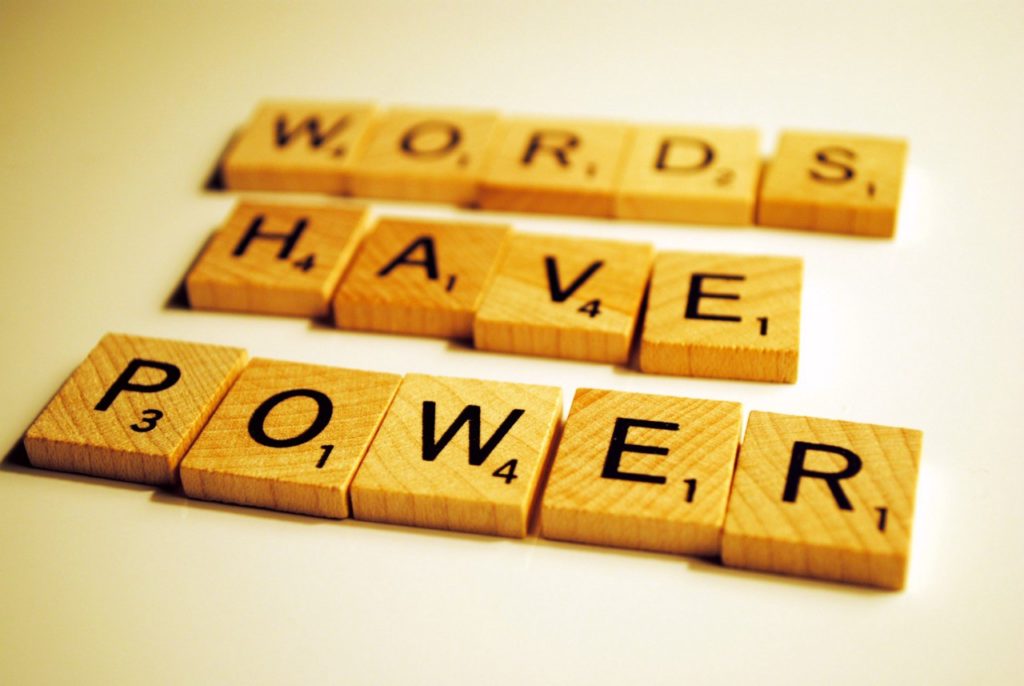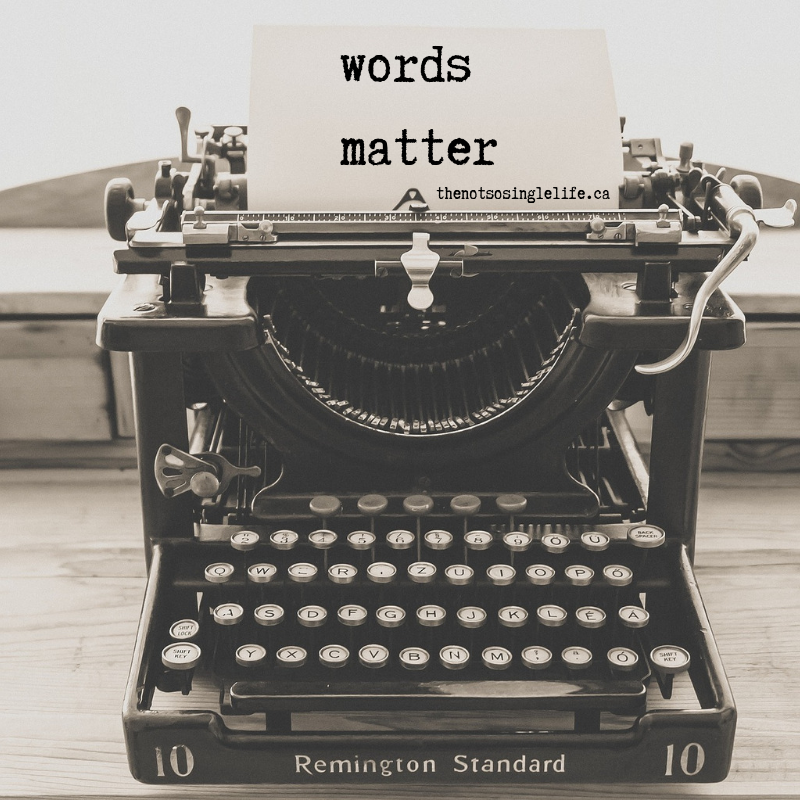My daughter has been noticing lately how many times texts say “him” in reference to all people. The little budding feminist that she is (no idea where she gets it from) asks me everytime,
“why does it say him? It should say “people.”
My son answers with an exasperated tone, “that’s what they mean, they just say ‘him’ to mean ‘everyone.’”
To which my daughter retorts, “well why not say ‘she’ and mean ‘everyone.’”
And she is right. Words matter. Our words are embedded with values and meaning. How many times have you caught yourself saying, “I love these shoes or I love that car?” That’s using the same terms of endearment for inanimate objects that we use to describe our feelings for our children and loved ones. In our home we have a saying – “We like things and love people.” Simply because words matter.

Words matter. Especially in divorce. Every therapist and divorce book will tell you not to bad mouth one parent in front of the other, easier mindlessly said than consciously done. This is part of the ABC’s of a healthy divorce. However, sometimes it’s not just a matter of not outright bad mouthing the other parent, like “your mother is so ridiculous and irresponsible” but it’s more subtle and nuanced. There have been times my kids ask me for something and maybe it’s about an expensive item or maybe it’s about a trip happening on their dad’s weekend but I have found myself saying, “go ask your father.” This phrase sounds fairly innocuous and in the context of a two parent home, it may very well be. However, in the context of divorce it takes on a new meaning. Embedded in this statement is a transference of ownership. I am saying, “your father is not my husband, he is your father and you need to ask him and take care of it yourself.”
You’re not convinced, eh? You think I’m reading too much into it? Well then you and my therapist should hang out because you’re not the first nor the last person to say I read too much into things. But on this, I am right. I notice in myself that when I am in that happy groove of co-parenting I always reference my children’ father to them as “Papa.” It is when I am angry and that the co parenting groove has hit the funk, as it always does every couple of months or so, when I find myself spewing, “your father.” The message is clear. He is not mine. Not my problem. He is your father and yours to deal with.

“My ex.” We all say it. How else do we describe the person we were once married to? The issue with “my ex” is that it is possessive. It defines the person only as they relate to us, not as an individual. We could reference our exes by name but sometimes the anger is rising so high we don’t even want to say their name. This is not a position of neutrality. Being able to reference our ex by their name or as the mother/father of our children positions them as a neutral force in our lives. They are no longer part of us. We stop the power they have over us. We claim control where we can in a situation that is often uncontrollable. The power is internal. Our ex’s will always be a part of our lives, especially when children are involved but they do not have an active part in who we are at this moment.They do not have a claim on you today. Calling them by their name demotes them from a power over our lives to someone who is simply a part of the complex fabric of our lives. It transcends them from an inhabitant in our minds to simply a guest.

Doing this isn’t just for our kids in creating an atmosphere void of parental venom but more so, for ourselves. Words make a difference. The words we choose have the power to shift our mindsets.Words matter and so do you.



